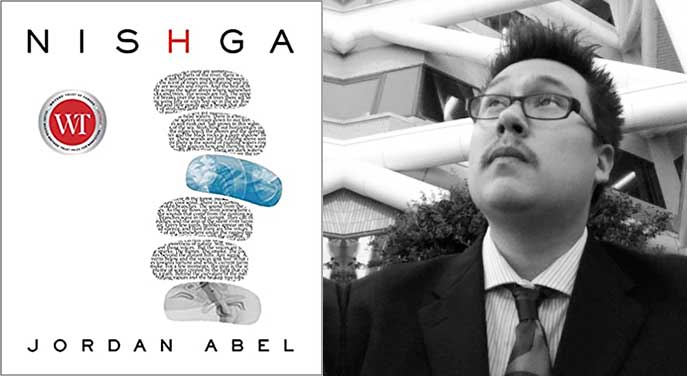There were times Jordan Abel wished he’d never started Nishga, the memoir that earned him a nomination for Canada’s biggest non-fiction honour, the Hilary Weston Prize.
Writing the book was just too painful, he said. It probes the darkest moments of his family’s history, particularly “the wake of violence that ripples outwards” from the Coqualeetza Industrial Institute, the residential school both grandparents on his father’s side attended in the Nisg̱a’a community of Gingolx in northwestern B.C.
“Throughout the process of writing this book I have experienced intense feelings of loneliness, isolation, depression, anxiety and thoughts of suicide,” he writes in the book’s framing piece, “Open Letter to All My Relations.”
But Abel pressed on nonetheless, partly to help fill the void of silence around the intergenerational trauma of residential schools. That relative silence is why he is skeptical of reconciliation as understood by many non-Indigenous people – as an easy fix and final resolution to an ongoing, destructive cultural legacy.
“Reconciliation is not something I’m particularly invested in,” he said. “Non-Indigenous people tend to be overly invested in the reconciliation part of truth and reconciliation. A useful question to ask is: Reconciliation for whom?
“The truth part is just as important. Think about the conversation around all those unmarked graves of children. Indigenous peoples have known about it forever, but the truth has only recently been visible, tangible for non-Indigenous peoples.”
A graduate of the University of Alberta’s Faculty of Arts, Abel arrived back at the university in 2018 after finishing his doctorate at Simon Fraser University, where he produced Nishga as his creative dissertation.
The book reads almost as a challenge to the conventions of memoir. Abel calls it creative non-fiction or multi-genre, weaving his own story with brief passages from archives and other interconnected documents and photography and art – including paintings by his father, Lawrence Wilson.
Abel didn’t meet his father until he was 23 and never knew his grandparents. And because he never lived in Gingolx, he had to painstakingly research the traces left of his family’s lives.
In addition to the Weston nomination for Nishga, Abel also won the Griffin Poetry Prize in 2017 for Injun – a long poem about racism and the representation of Indigenous peoples. He is now an assistant professor in the U of A’s Department of English and Film Studies, teaching creative writing, Indigenous literature and research creation.
He is currently working on a research project that examines Indigenous understandings of relationships to land through fiction, especially among intergenerational survivors of residential schools whose relationship to community has been severed.
Abel contrasts that Indigenous perspective with “deeply problematic colonial books” such as James Fenimore Cooper’s Last of the Mohicans, “a foundational text for American nationalism and understandings of land and territory in North America,” said Abel.
But Nishga is his most personal examination of intergenerational trauma in Canada and a book he still finds hard to talk about. Even when giving public readings, he avoids the rawest moments of the narrative – those dealing with sexual and physical violence, lateral violence, depression, suicide and self-harm – hoping readers will find them on their own.
“My strategy is to try and read around those things, to try and touch on the edges, or the periphery in some way.”
As the Weston Prize jury puts it, “Nishga wades into Indigenous artistry in a colonized space and the brutal history of forced assimilation. Abel takes the most natural path to its end, and in doing so, finds his own winding way.”
In the end, Abel recognizes that much of his story does not belong to himself alone. It’s part of a collective history with a force of truth that will never be entirely reconciled or resolved but may nevertheless contribute to healing.
And yet he knows that, for some, his memoir may be as hard to read as it was for him to write.
“I ultimately hope that this will be a book that helps people. I also want you to take care of yourself first. If now is not the time, there will be another time.”
| By Geoff McMaster
Submitted by the University of Alberta’s Folio online magazine. The University of Alberta is a Troy Media Editorial Content Provider Partner.
© Troy Media
Troy Media is an editorial content provider to media outlets and its own hosted community news outlets across Canada.


